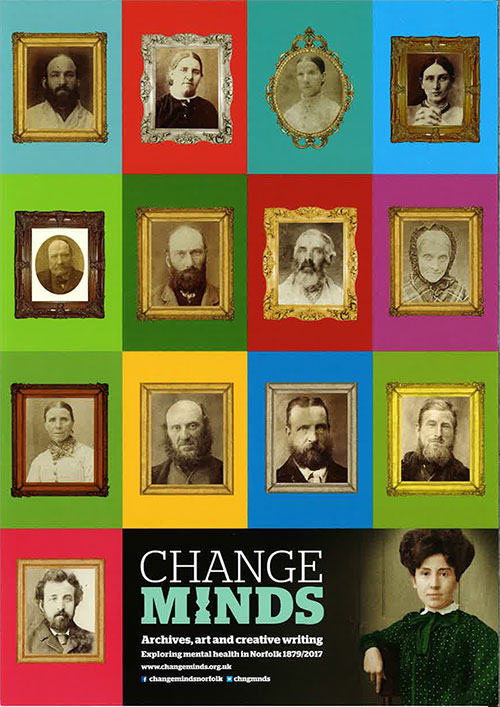
Change Minds is a collaboration between Norfolk Record Office, the Restoration Trust, and Together for Mental Wellbeing.
How can researching the lives of people in the past benefit us in the present? It is Mental Health Awareness Week, and an opportunity to think about the huge potential for archives to play a role in improving our mental wellbeing. At The National Archives, we explored this theme in Archives Unlocked; however, the Change Minds programme in Norfolk demonstrates the real and powerful impact that working with collections can have on the lives of individuals.
Change Minds is a collaboration between Norfolk Record Office, the Restoration Trust, and Together for Mental Wellbeing. Using the digitised 19th century case books of Norfolk County Asylum, participants – who are living with mental health conditions – follow a three-term programme, beginning with research on the case history of a chosen patient. This research is then used in a series of creative workshops that explore the experiences of both the participant and their research subject through art and creative writing, oral history and by creating an exhibition.
The benefits to the participants have been significant. Feedback shows that the chance to meet people, and to feel connected to new people in both the past and the present has been transformative. It has opened up new interests, new confidence in skills and talents, and even paths to volunteering,
Gary Tuson, County Archivist at Norfolk Record Office, told me that the key to the success of the project is the strength of the delivery partnerships and the vital support of mental health professionals. The programme has run twice, and Gary has ambitions to develop Change Minds and extend it beyond Norfolk. New hosts for Change Minds courses would mean that, as well as having a significant impact on the wellbeing of individuals, by using the same evaluation methodology across all projects they would develop a meaningful body of evidence of the impact of archives on mental wellbeing.
When people hear about the programme, they often comment on its potential riskiness. It was my first instinct too; could the records have had the potential to be distressing, especially as 19th century understanding and treatment of mental health conditions was so different from that of the present day? However, the architects of the programme understood that the course could offer a positive sense of identification and empathy, bring new interest to patients’ lives and develop their confidence in self-expression. Connecting, learning and taking notice are three of the Five Ways to Wellbeing, showing how much opportunity archives offer all of us – not just those experiencing mental health difficulties – to increase the quality of our daily lives.